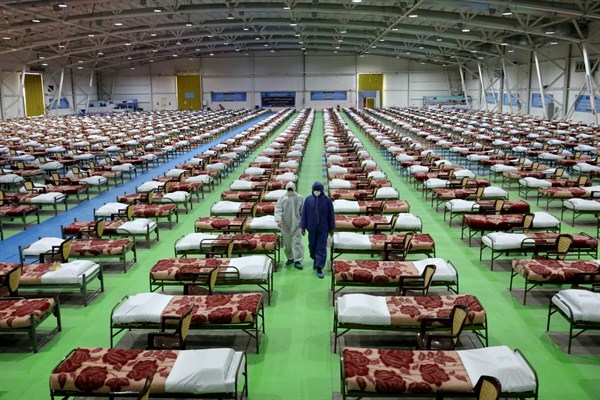Iran is one of the countries hit hardest by the coronavirus. As of March 30, it was behind only the United States, China, Italy, Spain, Germany and France in the number of confirmed cases, with more than 40,000. Its death rate is also one of the world’s highest, at around 7 percent, though it is well behind Italy’s staggering 11.4 percent.
Yet in the face of this public health crisis, President Donald Trump is continuing his “maximum pressure” campaign against Iran with crippling U.S. economic sanctions that were imposed after Trump unilaterally abandoned the international nuclear agreement curbing Iran’s nuclear program in May 2018. As recently as two weeks ago, the Trump administration imposed further sanctions against Iran as punishment for its behavior in the Middle East. A decision last fall to tighten sanctions on the Central Bank of Iran made it nearly impossible to actually use long-standing exceptions for shipments of food and medical supplies to Iran—from any country, not just the United States.
This hard line from the Trump administration of maintaining sanctions during a global pandemic isn’t limited to Iran. It has kept stringent sanctions in place against a number of other highly vulnerable countries, including North Korea and Venezuela. While North Korea denies that it has any coronavirus cases, it has reportedly been seeking assistance from aid agencies to get more test kits and personal protective equipment for health workers.

